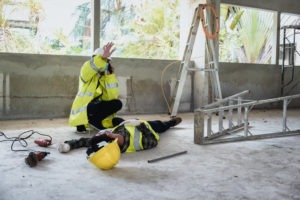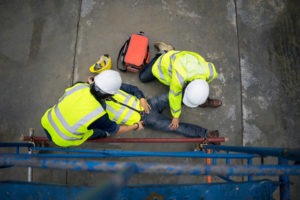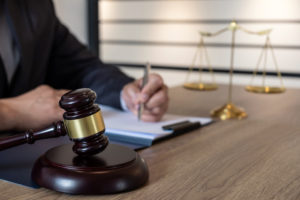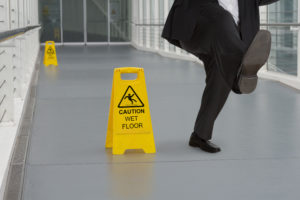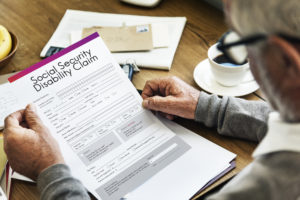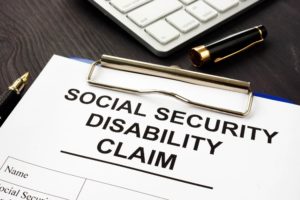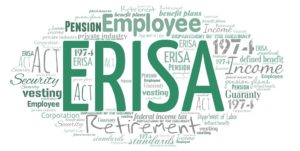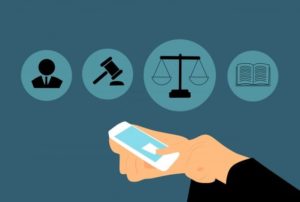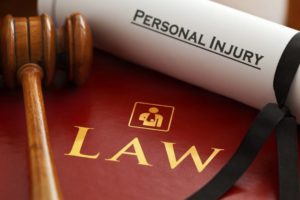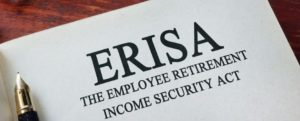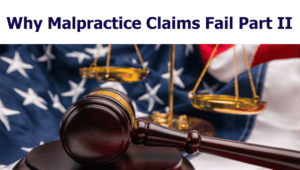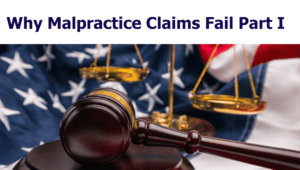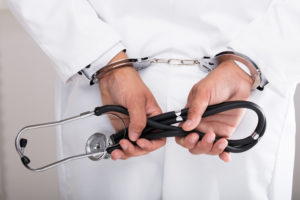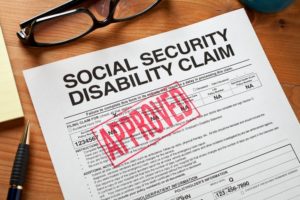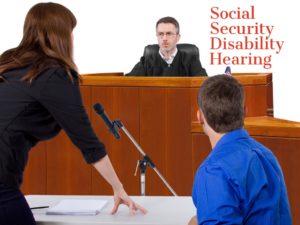
Social Security Disability Hearing claimants have many questions in anticipation of their SSA hearing. Here are the Top 15, Social Security Hearing, Frequently Asked Questions:
- Why Do I Have to Have a Social Security Disability Hearing Before An Administrative Law Judge?
- What is an Administrative Law Judge and How Did He Qualify to Be a Judge?
- Is There an Advantage to Appealing My Case to an ALJ?
- How Long Will I Wait for My Hearing with the ALJ and What Happens While I Wait?
- How Long Will My Social Security Disability Hearing Take?
- Who Can Come with Me to My Social Security Hearing?
- Who Will Ask Me Questions During My Social Security Disability Hearing?
- How Early Should I Arrive for my Social Security Disability Hearing?
- What Should I Wear?
- Can I Bring Notes with Me to Use During the Hearing?
- Can I Take a Break During My Social Security Disability Hearing?
- Is the Courtroom Like Those Shown on T.V. Legal Shows?
- Who Else Besides Me and My Witnesses Will Be in the Courtroom to Testify?
- Should I Worry About Having an Expert Who I Never Met Testifying In My Case?
- How Does The Judge Know What to Ask About My Disabilities?
- Can Underwood Law Office Be My Social Security Lawyer?
Why Do I Have to Have a Social Security Disability Hearing Before An Administrative Law Judge?
Once a Social Security disability claim is filed through the district office, a decision is made by the district office claims reviewers. If the claim is denied, an administrative review can be requested by the local office. Then the file is re-examined. If the claimant again does not get a favorable decision, he must move to the third stage by requesting a full Social Security hearing with an Administrative Law Judge. If a Social Security Disability hearing is not requested, the denial will stand. The claimant will not receive benefits.
What is an Administrative Law Judge and How Did He Qualify to Be a Judge?
An Administrative Law Judge (called ALJs) is appointed by the federal government to serve. Administrative law judges employed by the Social Security Administration (SSA) hear cases and decide on Social Security disability claims at the Office of Hearings Operations. An ALJ must meet certain requirements to apply for the appointment. The candidate must be a lawyer and hold a license to practice law. The candidate must have seven or more years of experience in litigation practice or administrative law practice while holding a law license. If these two conditions are met, the candidate for an ALJ position then applies to an ALJ job opening posted on the website hosted by the Office of Personnel Management.
For a free legal consultation with a lawyer serving Allen, call (972) 535-6377
A rigorous interview process and background check is conducted to ensure the best candidates are chosen to become ALJ’s. Many ALJ’s have experience working as attorneys for Federal agencies that litigate to enforce various Federal laws through specialized agencies such as Department of Labor, Department of Health and Human Services, and the Department of Education. Still others come from jobs as attorneys in law firms large and small where they litigated cases under Federal statutes and gained an expertise in a particular area of Federal law, such as Social Security Law.
Is There an Advantage to Appealing My Case to an ALJ?
Personal Injury Lawyer Near Me (972) 535-6377
There is a good chance of getting the favorable decision claimant needs from the ALJ. Recently, approximately 47% of cases heard by an Administrative Law Judge ended with a favorable decision for claimant. Having an attorney to assist the claimant increases the likelihood of prevailing in an even higher percentage of cases. The key is to work with counsel to develop the case carefully. There will be a wait for a hearing date with the ALJ.
How Long Will I Wait for My Hearing with the ALJ and What Happens While I Wait?
Click to contact our FAQs today
Social Security hearings are not immediately scheduled after the Request for Hearing is made to the Social Security Office of Hearings Operations. From start to finish, a Social Security Disability Claim will take even longer. In that waiting period of six months to perhaps one-year, new medical evidence can be gathered and sent to The Social Security Office of Hearings Operations via mail or the newer e-filing system. This new evidence can strengthen claimant’s case.
Complete a Free Case Evaluation form now
Sometimes, the Social Security Office may schedule claimant for a medical evaluation by a physician of its choosing who has not seen claimant before. That examining physician will render a medical report on claimant’s condition and level of disability. This report will also go into the file for consideration. Even the state’s Offices of Disability Determination may send out forms and questionnaires to claimant in this time period, regarding physical condition, work skills and physical duties required of the work normally done by claimant. Sometimes these independent medical and vocational reports are very supportive of claimant’s disability allegations.
Claimant over age 55 years is in a better position to prevail sometimes than a younger claimant at this level, because of certain presumptions about ability to learn new skills and to overcome certain physical conditions. A claimant of any age gets to put on his case before the ALJ.
How Long Will My Social Security Disability Hearing Take?
Most Social Security Disability Hearings before an ALJ take about an hour to two hours. The length depends on the complexity of the issues and the number of witnesses. At the hearing, an Administrative Law Judge can review the medical evidence and take testimony from the claimant and other witnesses. These witnesses can include family and friends of claimant, who can corroborate testimony about daily functioning and difficulties doing normal activities, as this bears on the ability to work usually.
Who Can Come with Me to My Social Security Hearing?
Witnesses for claimant usually must wait in the waiting area until called to testify. They cannot sit in the hearing room with claimant while he testifies. The claimant will be sworn in before testifying as will the experts and other witnesses, if any are there. Only the Judge, claimant’s attorney, expert witnesses, and the judge’s aide, who records the hearing, are there.
Who Will Ask Me Questions During My Social Security Disability Hearing?
Some ALJ’s let the attorney for claimant do all the questioning. Other ALJs do some or most of the questioning, and then invite the attorney to ask questions of the claimant to highlight issues perhaps not covered by the ALJ’s questioning. Usually the claimant’s attorney will have gone over in advance the questions he will be asking claimant and those an ALJ usually asks.
How Early Should I Arrive for my Social Security Disability Hearing?
It is important for claimant to arrive at least 30 minutes before the hearing. This is to give claimant and counsel a chance to view, (by computer usually), the medical evidence received into the file before the hearing starts. Any evidence submitted by counsel that may be missing from the record can be pointed out and then offered in the interval before testimony begins, for the Judge’s review. Any objections to evidence submitted into the record from other sources can also be made known to the Judge before the testimony begins and can be discussed. It is important that claimant and his attorney undertake this review to make sure the record is accurate and up to date before the ALJ uses it to decide after the hearing.
What Should I Wear To My Social Security Hearing?
The claimant should dress appropriately for the hearing. Casual clothing is permitted, but claimant should not dress as if he were heading for a day at the beach or getting ready to clean the garage. Witnesses for claimant should follow the same guidelines.
Can I Bring Notes with Me to Use During the SSA Disability Hearing?
While claimant may take notes during the private preparation with his attorney, generally notes cannot be used by claimant during the hearing. If the disability claimed severely affects claimant’s ability to recall facts, the attorney can ask permission for claimant to use notes. The notes must be shared with the ALJ and any experts when this occurs. It is helpful to bring a list of medications to hand to the Judge if it was not already uploaded to the file. The list should indicate daily dosage, strength and conditions the medication treats. These medications may have side effects that bear on ability to work.
Can I Take a Break During My SSA Disability Hearing?
Generally, breaks are not permitted during an SSA Disability Hearing for several reasons, including the amount of time allocated for your hearing. However, if a medical emergency occurs during the hearing, the Administrative law judge will stop the hearing to address the emergency. Many times, a Social Security Disability Claimant may be in too much pain, to stay seated for the entire hearing. You are allowed to stand, or adjust your position, to relieve the pain that you may experience during the SSA hearing.
Is the Courtroom Like Those Shown on T.V. Legal Shows?
The courtroom is usually smaller and less elaborate than what you see on T.V. courtroom dramas. The Judge does sit up higher than the rest of the room, behind the “bench” like on TV. Counsel and claimant sit at a long table set in front of the bench by about 9-10 feet. There are microphones and recording devices on the table. The hearing is recorded and you may ask for a copy of the recording. There is generally no “witness stand” like seen on T.V. however. The claimant and witnesses answer questions at the table where they sit with counsel. Social Security Disability is supposed to be non-adversarial. That means there is no prosecutor there to grill claimants as seen on T.V. It is more of a fact-finding mission in the courtroom. The claimant and any witnesses do get sworn in and do testify under oath like in a regular courtroom. Questions should be answered clearly and to the point.
Who Else Besides Me and My Witnesses Will Be in the Courtroom to Testify?
If requested by the ALJ, medical and vocational experts can be present in the courtroom. Their job is to listen carefully to the testimony from claimant. They will also have had opportunity to review the records. The job of these experts is to give an opinion on the case, based on the medical record and the testimony. Because advanced notice is given to claimant or his attorney if a medical and/or vocational expert if going to be used, claimant and attorney normally prepare special questions for the expert which help clarify claimant’s specific issues for the Judge. The attorney can also ascertain if the expert selected is specially trained in the specific disability. Unique questions can then be asked the expert that help the claimant.
Should I Worry About Having an Expert Who I Never Met Testifying In My Social Security Hearing?
It is not unusual for a vocational or medical expert to participate in a SSA disability hearing. Medical Experts, called “MEs” and Vocational Experts, called “VEs” provide evidence at the SSA Disability hearing. A favorable conclusion from the medical or vocational expert that claimant’s condition limits or rules out ability to hold gainful employment is very helpful. But the Judge will ask either expert pointed questions about the disability. He will ask whether a residual functional capacity exists. If the expert finds the claimant has some residual functional capacity, the expert is then asked about “jobs available in the economy” for claimant. This line of questioning concerns whether there are jobs open in sufficient numbers geographically within the claimant’s area and needing skills claimant may still have but limited by the disability symptoms. If there are not sufficient numbers of such available jobs, that fact also favors the claimant.
How Does The Judge Know What to Ask About My Disabilities?
The Administrative Law Judge must use the Social Security Disability guidelines. They are found in the Federal laws for each kind of disability claimant may allege. He builds his questioning and decision on them. These guidelines are in Title 20, Code of Federal Regulations, Chapter 3, and Section 404.1505. The listing of Impairments is found at 404.1525. The impairments are broken into categories related to parts of the body, systems or senses affected. Criteria for mental impairments and disorders are also there. Specific medical examination criteria, test results and related symptoms of each condition are in these guidelines.
Claimant and his attorney must work together to secure all pertinent medical records that meet these criteria. Test results and reports of symptoms present in claimant’s records that help meet the criteria should be obtained and highlighted through testimony. It is equally important that claimant be able to explain how conditions and symptoms bear on his ability to obtain and perform sustained gainful employment. Even side effects of necessary medications for the disabling conditions can be explored if they bear on ability to work.
Can Underwood Law Office Be My Social Security Lawyer?
Call us for a free consultation, if you need Social Security Disability Benefits or have questions about your SSA Disability Hearing.
Our McKinney, Texas, Social Security Disability lawyers serve Dallas and Fort Worth, including Plano, Frisco, Allen, and McKinney. It is a short drive from the Social Security Office in McKinney Office on Craig Drive.
Our Huntington, West Virginia disability attorney office serves West Virginia, Ohio, and Kentucky. It is just around the corner from the Social Security Office in Huntington. Our toll-free number is 844.UNDERWOOD (844.863.3796). Se habla español.
Call or text (972) 535-6377 or complete a Free Case Evaluation form






















